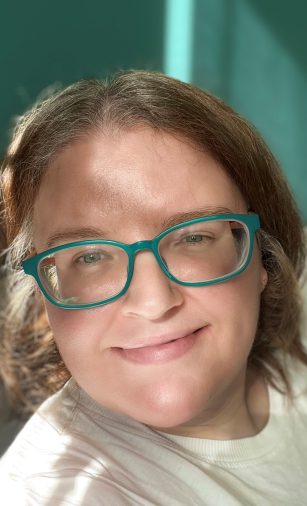Welcome to Orpwood
A confidential space to explore the thoughts, feelings and challenges in your life
My name is Sally Whittle-Long and I am a BACP-registered Psychotherapist providing online counselling and psychotherapy in Somerset, Cornwall, Devon and Dorset and throughout the UK.


Who am I?
I am a trauma-informed Psychotherapist and have been working in the field of mental health since 2017. I am currently offering telephone and online counselling, with limited availability for face-to-face work, and I would like to offer you a safe, non-judgemental space to explore your past and present in a way that allows you to feel fully in control and supported.
I am of dual nationality, being both British and South African, and have first-hand experience with the difficulties that come from leaving all you know behind for the chance at a better, more rewarding life. Integrating into a new culture can be daunting and overwhelming, and talking to someone who understands how isolating it can feel can be very beneficial.
I have experience supporting clients as young as 10 years old and up, from a variety of backgrounds - from those who have experienced trauma, whether it be current, recent or from childhood; grief, loss, bereavement, depression, anxiety, to those finding that patterns of past behaviour are repeating themselves in current relationships.
My training is as an Integrative Psychotherapist, meaning that I can offer a range of skills to help you understand, challenge or accept the experiences or problems that you are facing. I work collaboratively and compassionately with clients to achieve therapy goals, and firmly believe in empowering my clients at all times.



Counselling takes place in a safe space, where you can meet with someone who will listen with sensitivity and empathy - and without judgement. In the therapy space thoughts and feelings can be expressed freely and in confidence.

Trouble with a relationship; anxiety or panic attacks; mood swings or depression - many people face difficulties in their everyday lives that can be hard to get on top of. Counselling gives us a set of tools we can use to help gain a better understanding of what’s causing these problems - and how you can move towards managing or resolving them.

Working together I can help you gain greater insight into the difficulties you are facing, help you understand why you act or react to them the way you do, and see how you can start to make better, heathier choices moving forward.
What issues can counselling help with?
Clients come to me for help with a wide variety of reasons. Here are a few of the more common difficulties that can be supported through counselling:
Feelings of stress or anxiety
Panic attacks
Relationship problems
Grief, loss or bereavement
Cultural change/immigration challenges
Trauma and post-traumatic stress
Abuse
Depression
Problems with confidence or self-esteem
Anger management
Issues relating to sexuality
Difficulties at work or in retirement
Problems with family or school life

Fees & availability
Sessions are 50 minutes in length, and take place over telephone or online depending on your preference. The Initial assessment session is free, to allow you time to explore whether I am the right Psychotherapist to support you at this time.
Weekly/Fortnightly 50-minute session: £40
It is my aim to make accessing therapy as affordable as possible, and so can keep my fees low by offering telephone or online sessions
Many clients want a monthly ‘top-up’ session once they feel as though the goals they have come to therapy to achieve have been reached, but are not quite ready to end the support I offer completely.
I also provide a limited number of concession spaces – please contact me to discuss availability.
I offer a limited number of heavily discounted places for Emergency Services, with no waiting list. Please mention when enquiring if you are a member of the armed forces, police, emergency services, etc.
Get in touch
Feel free to contact me if you have any questions about how I work, or to arrange an initial assessment appointment. This enables us to discuss the reasons you are thinking of seeing a therapist, whether it could be helpful for you and whether I am the right therapist to help.
You can also call me on 07417 510290 if you would prefer to leave a message or speak to me first. I am happy to discuss any queries or questions you may have prior to arranging an initial appointment.
Some frequently asked questions
Many therapists tend to view Counselling as ‘short-term’ work; when someone has a problem that can be looked at and discussed in a clearly-resolvable way. This work often requires undertaking sessions for a certain number of weeks, to explore, discover and clarify a way forward. Therapy is a word used more to describe ‘long-term’ work; discussion that tends towards substantial issues and things that might be life-changing on a deeper level.
Whether counselling or therapy work best as a short- or long-term option depends on the client though, and the difficulties they are facing. In some cases counselling can prove helpful as a continuing, longer-term option, or therapy can help resolve an issue in just a few sessions.
There’s no fixed or ideal length of time for the counselling process; it varies from person to person and will often depend on the depth of the issues they are facing. While I can work on an open-ended basis with clients, I find it is helpful for us to both agree before we start on undertaking a certian nunebr of sessions and reviewing where we are at once we reach that point. You are able to decide how long your therapy willl last, and in return my aim is to make sure therapy continues for only as long as it is of benefit to you.
This depends on what your needs are. Some people find that after only a very few sessions they have some clarity and focus and are ready to end the therapy. Other people value the ongoing support and relationship with me and will continue to come for weeks, months, or even years. There is no 'one-size-fits-all' when it comes to therapy.
My aim is to offer you a first appointment, known as an assessment session within 1-2 weeks, this is once we receive your completed client pack back. However, waiting times will vary according to pressure on our resources, your own availability and the service you seek.
An appointment to our short term counselling, which is not subsidised, can be offered within about one week.
Confidentiality is one of the main ways in which therapy differs from many other forms of helping - for example, talking to friends or family can rarely offer the same degree of confidentiality as talking to a counsellor. Because of this confidentiality, you will find that - as you get used to coming for therapy - you are freer to talk about whatever you wish to.
No therapist can offer 100% confidentiality: there are some situations where the law requires disclosure of risk (e.g. certain child protection issues) and in common with most other therapists, there are some situations where I may not be able to keep total confidentiality. In particular, if someone tells me that they are thinking of harming themselves in a way that I believe puts them at serious risk, or if someone tells me that they are doing something that could put others at risk, I may not be able to keep such information confidential. However, breaking confidentiality is rare, and only happens after talking to the person concerned.
When you come for counselling it's important that you feel free to talk about whatever is important to you. Sometimes, you may not be clear what those issues are. Having a friend or family member with you is not usually helpful because they may have their own agenda for you. Even if this is just that they want to be supportive, or want you to 'get better', this agenda can prevent us opening issues up. When you come for therapy, you may need to explore thoughts or behaviours about which you feel ashamed or embarrassed and you may censor yourself so as not to hurt someone, or you may find that what they want you to talk about is not really what you need to discuss.
Sometimes, family/friends can even be part of an underlying issue which needs to be aired and discussed. Usually, people who ask this question are nervous about coming for a session alone, or they are anxious for the person who is thinking about arranging sessions. This anxiety is quite normal, and you will not be forced to talk about anything you feel uncomfortable about - but you do need to be able to talk about whatever is important. For this reason, I do not see clients accompanied by friends or family
© Sally Whittle-Long
powered by WebHealer
